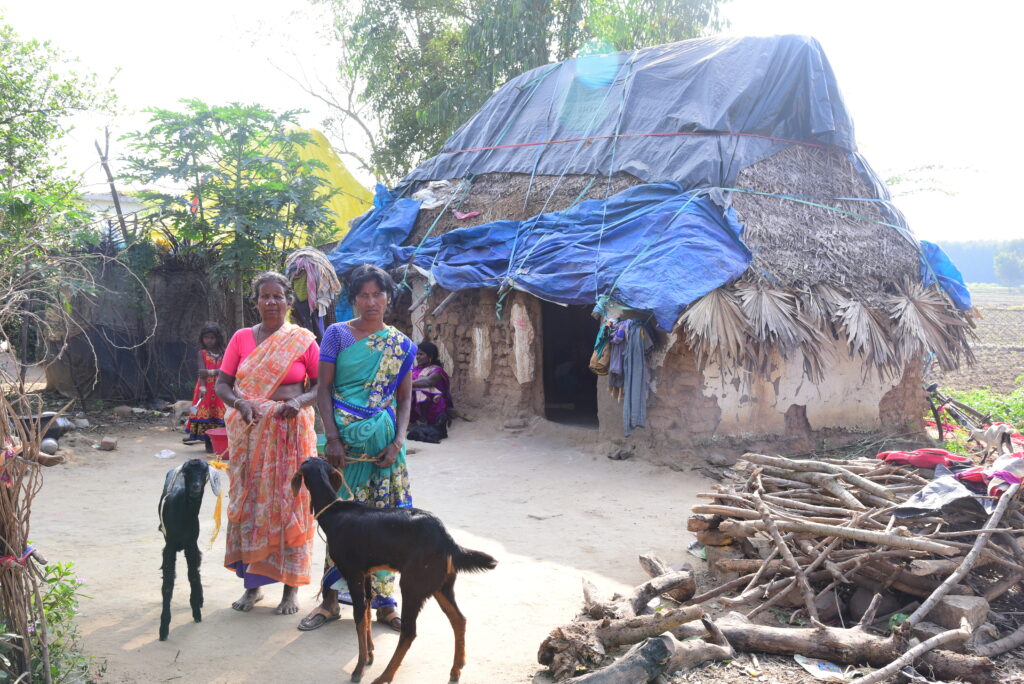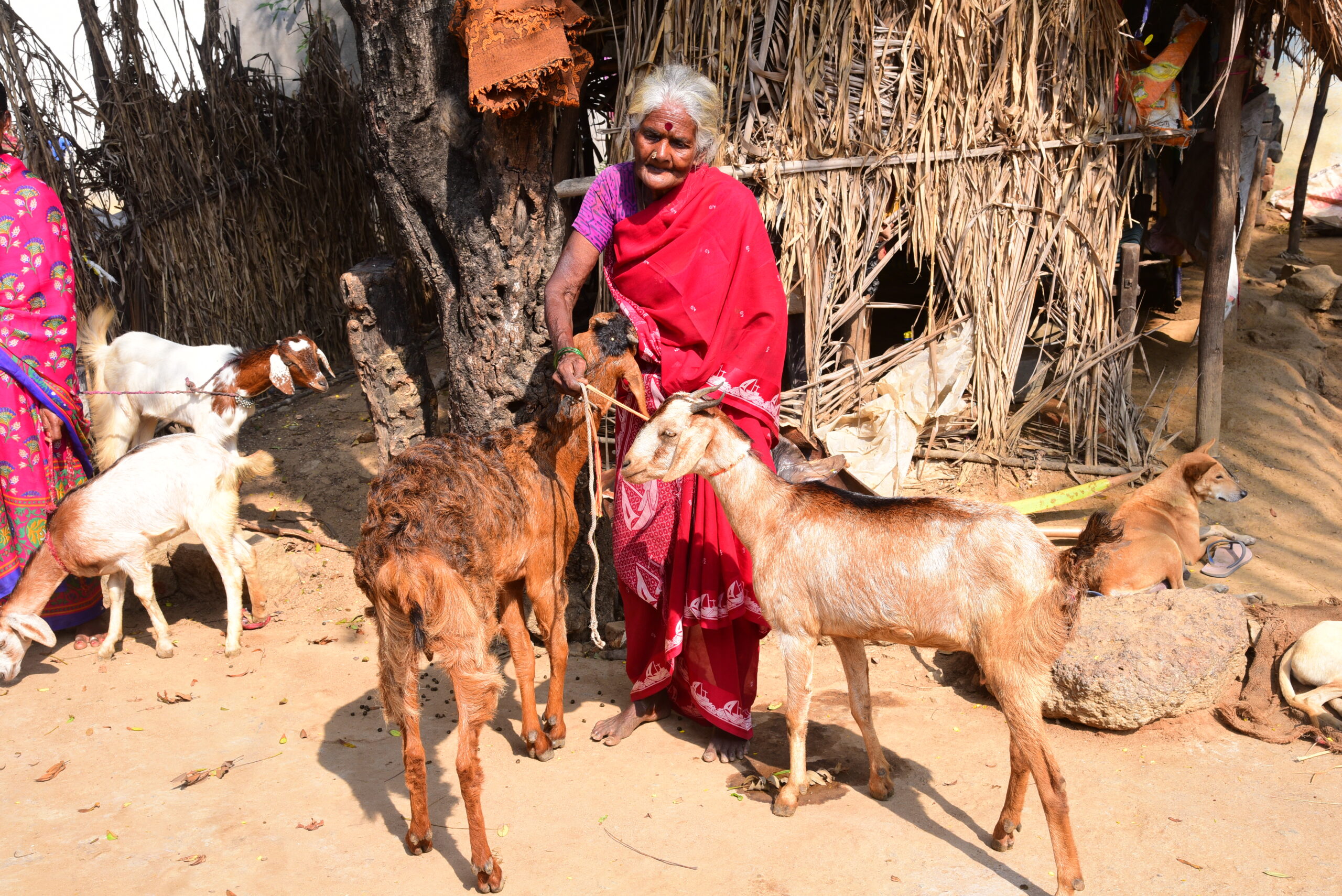The women from Pichatur mainly work in agriculture and only get seasonal work for five to six months a year or as long as there is water in the well, not even daily but at most 20 days a month. Due to inadequate education, they are unable to seek alternative work opportunities in the off-season.
The wages earned are very low and the entire family burden is usually borne by the women, as the men usually work away from home, are rarely at home or do not take care of their families. With the limited and uncertain income, women do not find motivation in their lives, the economic standard gradually decreases and causes social problems from which the whole family suffers.
This project, supported by the Schöck-Familien-Stiftung, will create earning opportunities for an initial 50 selected women through goat rearing, as they have known about rearing and caring for goats since childhood, thus giving them the opportunity to bring out the hidden talent of rural women and strengthen their social status and independence.
They are trained by local veterinarians to prevent disease, learn preventative measures, and learn about new methods of providing healthy natural feed for pregnant animals and kittens. The trained women join together to form small cooperatives and are trained in alternative income generation programs as a food security measure.
The women are selected by a group of experienced social workers who are known in the villages. The women who are most in need and have experience with goat rearing are selected.
In addition, they receive a monthly microcredit with which they can sell vegetables, salads and herbs, dried fish and small household goods for daily needs at the markets as small entrepreneurs until they can generate income with goat rearing.
Project executing organization: Indienhilfe Trippstadt NALAM e.V.
Project Partner: Nehru Yuvajana Seva Sangham (NYSS)
Funding year: since 2022
Project no.: 173-22 sa


